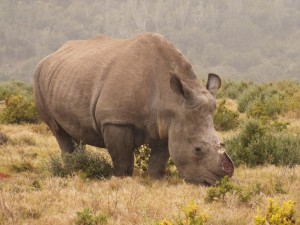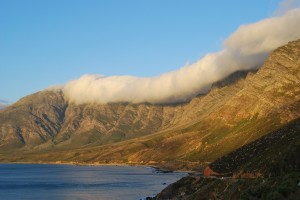The late esteemed South African paleontologist, Professor Emeritus Phillip Tobias, was once asked: “What has Africa given the world?” His reply was, “There is a simple answer. Africa gave the world humanity, and that is no small thing.”
 With < the recent discovery of the hominid, Homo naledi, at the Cradle of Humankind, the eyes of the world are once again focused on our most distant origins.
With < the recent discovery of the hominid, Homo naledi, at the Cradle of Humankind, the eyes of the world are once again focused on our most distant origins.
From the time that our earliest ancestors wandered the grassy savannahs of Africa, our species has evolved consciousness, intelligence, artistic expression and spirituality in response to the world of nature. Indeed, the African savannah where our first ancestors appeared thousands of millennia ago, has been the cradle of our species. And over the ages this natural world has literally shaped our bodies, minds and souls, from time immemorial being our species’ shaper and teacher.
Our ancestors learned about the concept of time from observing the passage of the moon through the night sky. They learned to understand the effects of the passing seasons on migrations of game. By observing nature with an innate shrewdness, the ancients learnt the laws of leverage and gravity and based the principles of their early traps on these laws, the ingenuity of which was the first indication of a species that had gone beyond instinct into a cognitive capability that was unique on the planet.
Also unique in the evolutionary history of Earth’s species was the development of conceptual thought and symbolic language; capabilities that allowed for reflective discussion, the sharing of detailed information, social interaction and co-operative effort, elements that eventually led to the development of culture, our defining human characteristic.
 We are as inextricably linked to the wind whispering in treetops, to clouds scudding across a darkened sky or to the deep rumble of distant thunder as a leopard prowling a rocky mountain ledge. Our connection to the natural world is our most profound and enduring connection and it is a mistake to think that because our modern lives are lived glassed in away from nature and the elements that they no longer have any jurisdiction over us.
We are as inextricably linked to the wind whispering in treetops, to clouds scudding across a darkened sky or to the deep rumble of distant thunder as a leopard prowling a rocky mountain ledge. Our connection to the natural world is our most profound and enduring connection and it is a mistake to think that because our modern lives are lived glassed in away from nature and the elements that they no longer have any jurisdiction over us.
In reality the opposite is true. Sensed but unseen, felt but not comprehended, elements of the natural world still exert an enormous influence over our everyday lives. And it seems that when our backs are against the wall, it is the influence of nature that we seek to calm our troubled spirit. Warming sunlight, the smell of bushveld, a profusion of flowers and the sigh of the ocean as it leaves the shore; these are the healing agencies of nature that soothe our modern city senses.
We are all truly the children of nature. And in an ancient and profound sense, we are the children of Africa. This is what Africa has given the world.